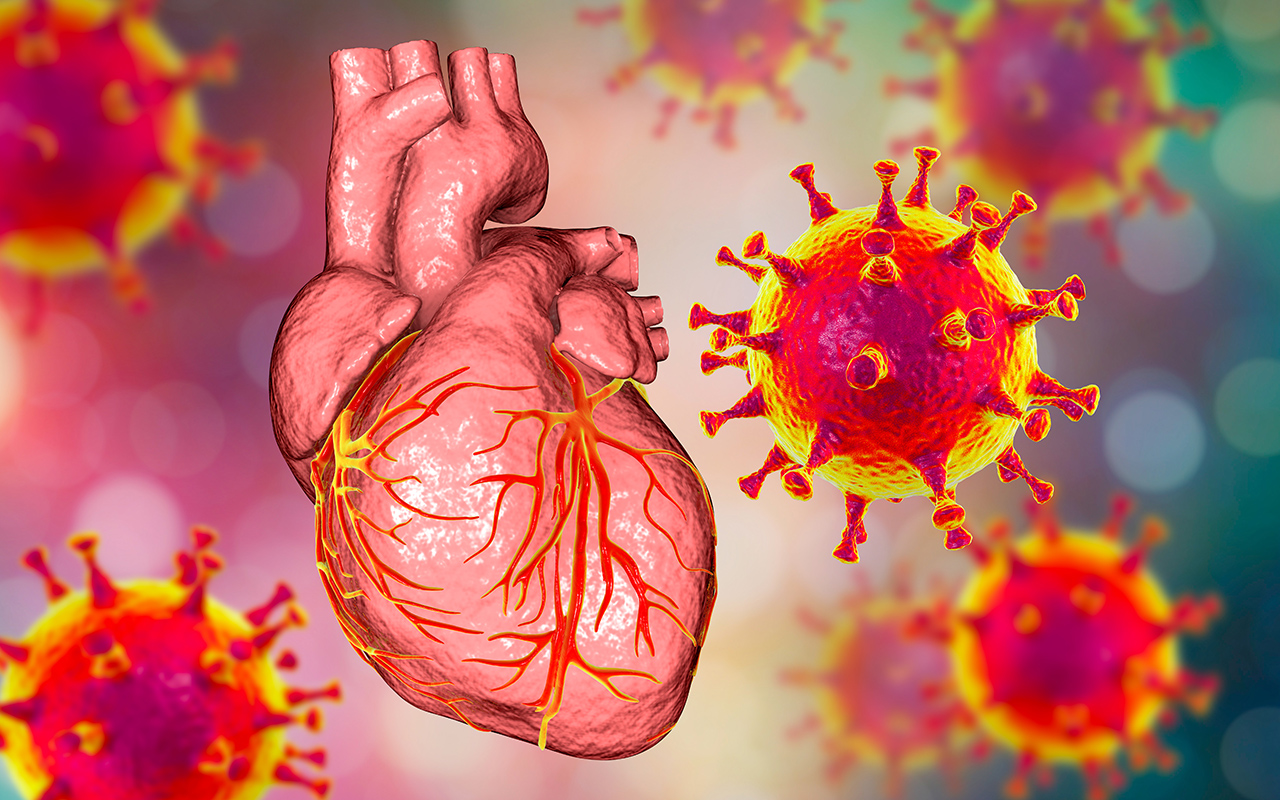CLINICIANS treating patients with COVID-19 should remain vigilant about the possibility of cardiac complications, even though new research shows the incidence of such complications is “reassuringly low” in Australia so far.
Dr Kunwardeep Bhatia, a cardiology advanced trainee at Royal North Shore Hospital in Sydney, and colleagues analysed data from 644 consecutive patients with COVID-19 admitted to 21 Australian hospitals by January 2021.
“In the very early days of the pandemic, we started to see some signals, mostly from overseas, that there were all these cardiac complications in patients who were hospitalised with COVID-19,” Dr Bhatia said in an exclusive podcast.
“Those complications included things like abnormal heart rhythms, in particular things like atrial fibrillation, inflammation of the heart itself, and heart failure or cardiomyopathy.
“A lot of these reports we were getting from overseas were of very selective cohorts of either very sick patients, or in settings where the health system had been overwhelmed with COVID-19 cases,” Dr Bhatia said.
“So they weren’t necessarily reflective of what you would see in a non-pandemic setting or in health care systems that were not overrun. We were very interested to see what we would find in Australia.”
Bhatia and colleagues’ research, published in the MJA, found that 125 patients (19%) were admitted to intensive care units, and 70 patients (11%) required intubation; 92 patients (14%) died in hospital.
“Outcomes for 15 patients (2%) transferred to other hospitals were not known,” Bhatia and colleagues reported.
“Twenty of 553 patients without histories of atrial fibrillation or flutter were diagnosed with the condition (4%). Of 588 patients who did not have permanent pacemakers or implantable cardioverter defibrillators, three (0.5%) developed high grade atrioventricular block.
“No patients developed torsades de pointes.
“Nine of the 572 patients without prior diagnoses of heart failure or cardiomyopathy (2%) were diagnosed with new heart failure or cardiomyopathy. Of the six who underwent echocardiography, four had left ventricular ejection fractions of less than 50%, one was reported as having mild left ventricular impairment but no ejection fraction was recorded, and one had elevated levels of B-type natriuretic peptide.
“Corresponding data were not available for the other three patients, who had clinical diagnoses of heart failure.
“Two patients had clinical diagnoses of pericarditis; the troponin level was mildly elevated in one (less than five times the upper limit of normal), suggesting possible myopericarditis. Neither patient underwent echocardiography, cardiac magnetic resonance imaging, or biopsy.”
Dr Bhatia told InSight+ that the complication rate they found was “much lower than we anticipated, which is reassuring”.
“The take-home message for clinicians should be that they should remain vigilant to cardiac complications that can occur in COVID-19, especially arrhythmias including atrial fibrillation, pericarditis, and cardiomyopathy,” he said.
“However, what’s reassuring is the incidence of these complications in our Australian cohort is relatively low, when compared to international cohorts.”
Dr Bhatia acknowledged that the research was done prior to the emergence of the Delta variant.
“That’s the data we are actively capturing,” he said.
“It has not been analysed or published yet, but anecdotally, certainly we’ve heard from clinicians that perhaps cardiac complications are more frequent with the Delta strain.
“That’s something that’s very important to know, and something that hopefully our registry will answer down the track. We hear anecdotes a lot, but it’s important until you see the real data, of course, not to make any conclusions.”
Also online first at the MJA
Accepted article: Modelling direct and herd protection effects of vaccination against the SARS-CoV-2 Delta variant in Australia
McBryde et al; doi: 10.5694/mja2.51263 … FREE ACCESS permanently.
Editorial: Call for emergency action to limit global temperature increases, restore biodiversity, and protect health
Atwoli et al; doi: 10.5694/mja2.51221 … FREE ACCESS permanently.
Podcast: Dr Kunwardeep Bhatia, cardiology advanced trainee at North Shore Hospital, Sydney … FREE ACCESS permanently.
Research letter: Telehealth sexual and reproductive health care during the COVID‐19 pandemic
Cheng et al; doi: 10.5694/mja2.51219 … FREE ACCESS permanently.
Narrative review: Interventional bronchoscopy for chronic obstructive pulmonary disease: more than a pipe dream
Carew et al; doi: 10.5694/mja2.51218 … FREE ACCESS for one week.

 more_vert
more_vert